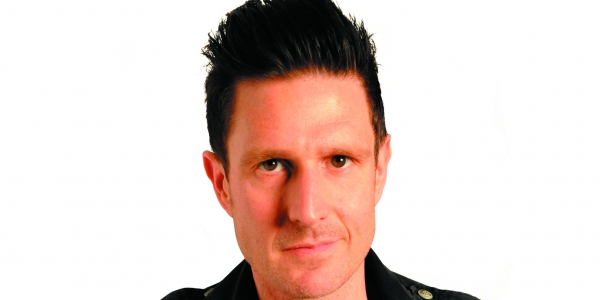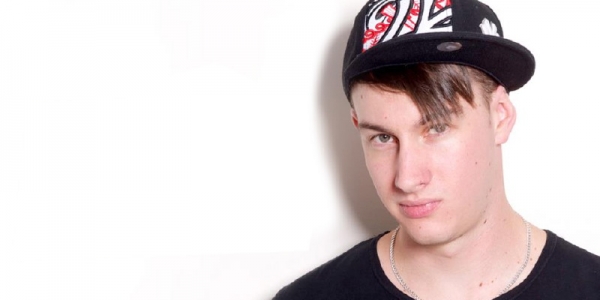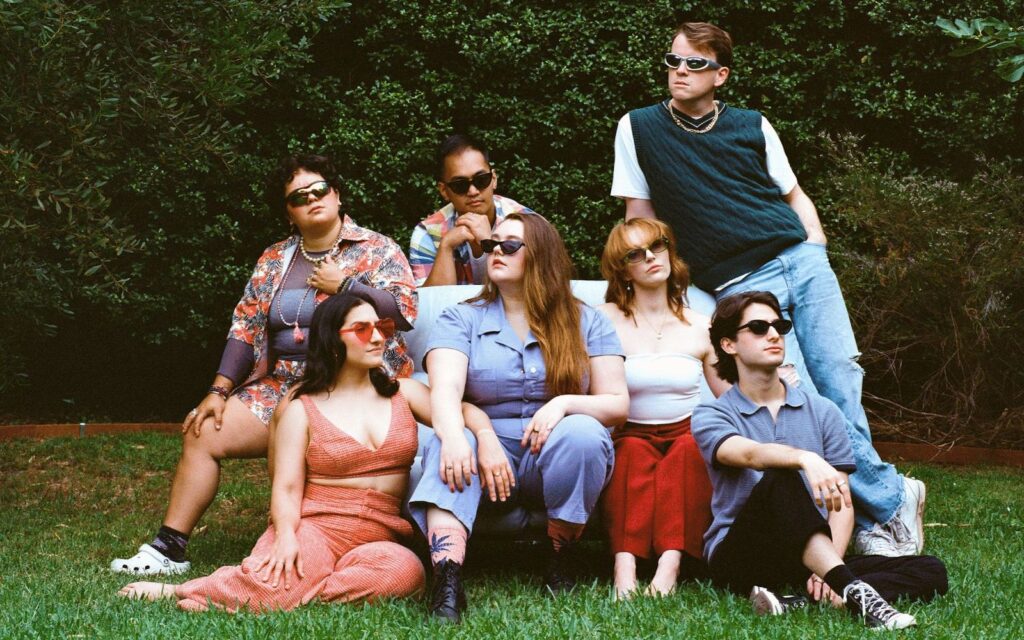Seriously, this article will be quote-heavy, because I think you all know enough about Wil Anderson by now that reading any bio or useless accounts like “oh he’s so busy with all these shows” is really wasting your time. Anderson is a bright thinker and an extraordinarily fascinating interview subject, and while the interview was scheduled for 10-15 minutes, nekminnit it had run over half an hour.
Goodwil is Anderson’s 18th show at MICF, and as per usual, it’s completely new material. His show last year evolved over the 178 shows he performed around the world, so Goodwil is still a work in progress.
“Justin Hamilton put it really well. He said by the time you get to the end of the tour, it’s like the greatest island ever invented. It’s got housing, luxuries resorts, parasailing and skydiving – whatever you want to do. It’s the most beautiful place in the world and you know how every part of it works, and then for some reason you decide to swim to a completely deserted island and start again from scratch,” he laughs. “What you’ve got to remember, is that the really cool island you were on, it was originally a deserted island too and you had to build it up from scratch. But going from the end of the tour, where your show is at its absolute best, to the start of the tour where obviously by the nature of the fact that you’re trying it for the first time, it’s at its most underdeveloped.
“But there’s a couple of main themes that seem to be developing through [Goodwil]. One is the idea about a lot of the shitty things that happened to me last year and I kind of run through those things but from the perspective of – my approach to life is pretty optimistic – and so I found it very interesting to talk about that idea of how hard it is to be positive when actual shitty things are going wrong and how you deal with that. I sort of transition from that idea into that idea of: ‘But really? In the grand scheme of shitty things?’ These are very much first world shitty things. We can’t let gay people get married because it’ll devalue our marriage. I’m quite passionate about talking about why people are so angry about things that will cost them nothing. It’s fascinating to me. The thing that I’m really obsessed with: everything is feedback and outrage now.
“As soon as something happens, everyone’s outraged. We’re all on our fucking phones all the time, and I’m a part of the opinion business – I make my living doing that – I guess what I’m trying to reconcile is, I don’t want to be one of those people that says, ‘I’m allowed to have opinions and no one else is’ but there’s a part of me that says, ‘They should all be spend more time thinking about these things rather than reacting to things’. In the old days, if you wanted to complain there was a process…in the old days you had to be genuinely outraged about something because you were like, ‘Alright I’m gonna write a letter, and I’m gonna find the address to send it to, and I’ve got an envelope, and I’m gonna buy a stamp’, and by the time [you go to send it] you’re like, ‘Ah fuck I’m not that offended’. I’ll just move on and life will be fine.
“It’s so easy for people to complain these days and I feel like we’ve gotten into this cycle of complaint and apology. All those issues are things that run through the show…the thing I’m really passionate about in this stage in my life – and it’s a bit harder to do [as a comedian] – because comedy is really easy to be black and white: ‘women are like this, men are like this’ but as you get older, here’s what you realise – nothing is black and white. Nothing. Everything is grey.”
Considering Anderson’s vast experience, I asked him what the most important quality is when crafting a new show.
“The most important thing, from my point of view anyway, is that I have to find something that I’m as interesting in talking about nine months from now as I am on the first night I’m talking about it. Because if I’m not interested in talking about it, then the audience isn’t gonna see that. I’ll give you an example of what I mean by that. There’s a piece in my show at the moment that kills. It gets a round of applause every night. I’ve done it for two and a half weeks and I’m already bored of it. And it kills. As soon as I have a piece that’s more interesting to me, that I can replace that with, it won’t be in the show anymore. I know I can make people laugh, I’ve been making people laugh for a long time. The difference between someone doing RAW Comedy is, someone doing RAW Comedy doesn’t know they can make people laugh. They want to know they can make people laugh. So they’re going out there going, ‘All I want is laughter’. Well I’ve heard people laugh before. I want to hear them to laugh for the right reasons or I want them to laugh that they didn’t expect to laugh at, or I want them to laugh at a concept that they didn’t know it was a concept you could talk about in comedy or if I am talking about something that I haven’t talked about before.
“I want them to be laughing at it for a different reason ‘cause I have a different perspective on it. For me the most important thing is finding out what it is that I actually want to talk about. I consider my shows essentially a nine-month conversation with myself: where my life’s at, where the world’s at, and what I’m thinking about the world. And then I try to make that funny. So I never think, ‘Here’s a funny story or this will be a funny thing’. I trust that once I find out exactly what it is that I want to be saying, that I have built up the skills over 18 years to be able to make that funny. The funny is almost like the icing on the cake – you’ve gotta work out what the cake is first before you can add the icing or it’s not gonna match properly. When you first start out, all you want to know is, ‘Am I funny? Can I do this?’ After a while – I’ve done this professionally for 18 years – something works, then the challenge is, ‘How can I do something that is better or more complex or more advanced than I did last year?’”
While Anderson elucidated the importance of finding his own material interesting, with such a curious mind, almost any topic can be transformed into a routine.
“What I’ve been trying to talk about is that everyone has the right to express their opinion and I think it’s great that people believe different things, however, we’ve got to a point that we think every opinion in equal and in some things that’s a dangerous thing to believe, particularly in the area of science. To use an example, if 95% of climate scientists in the world believe that climate change is an issue, maybe I don’t know more than them because I’ve read a blog,” he laughs. “I’m not saying it’s true even, I’m just saying areas like that we should trust experts. In the US there’s been big stories because people aren’t getting their kids vaccinated because Jenni McCarthy and fucking Rob Schneider are telling them not to. I’m getting medical information from Deuce Bigalow Male Gigolo. That’s the sort of stuff I’m interested in talking about in the show.”
BY NICK TARAS







